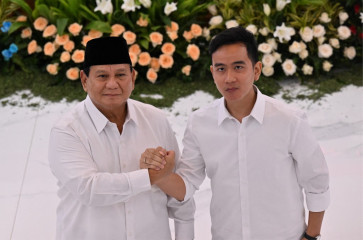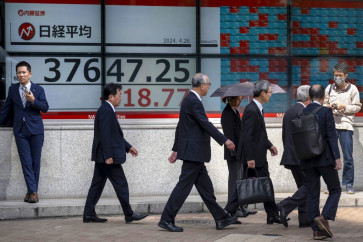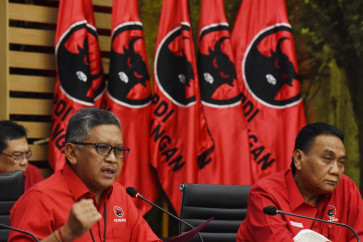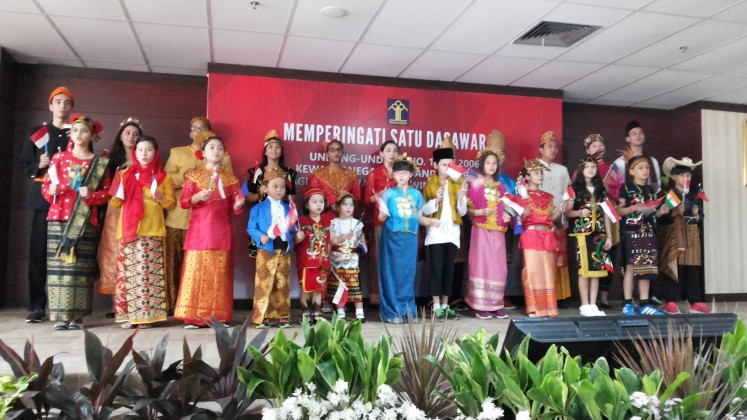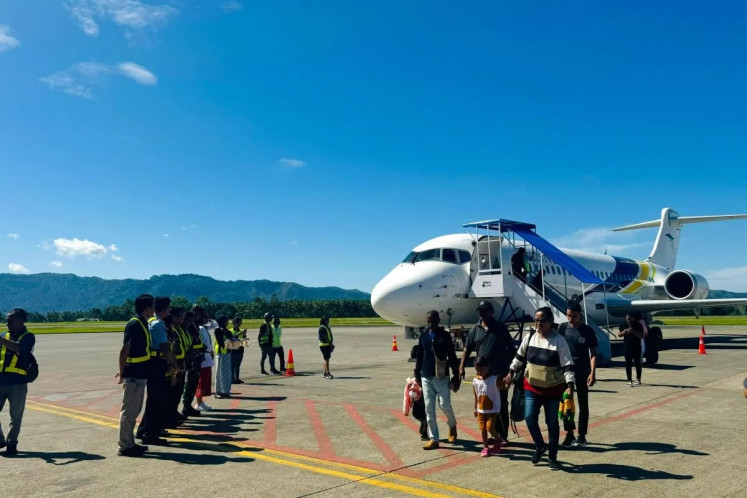Ban on raw mineral exports begins in 2014
The government will proceed with its plan to ban raw mining product exports beginning in 2014 despite concerns of a lack of mining refinery facilities to support the policy
Change Size

T
he government will proceed with its plan to ban raw mining product exports beginning in 2014 despite concerns of a lack of mining refinery facilities to support the policy.
Coordinating Economic Minister Hatta Rajasa said on Friday that the government was preparing a road map to ensure that all related stakeholders were ready to apply the policy on schedule.
He said that prohibiting the raw mining product export was part of the government’s commitment to fully enforce the 2009 Mineral and Coal Law.
The policy would also include the government’s plan to renegotiate all mining contracts that were not in line with the law, he added.
“Starting in 2014, we’ll ban all raw mineral exports. Therefore, we need to prepare a road-map, and it’s also important to rethink the royalty payment so that renegotiations can find a win-win solution. Fairness and mutual benefit must happen,” he told reporters from his office in Jakarta.
He added that the Energy and Mineral Resources Ministry would lead the renegotiation process.
“The renegotiation team is working under the leadership of the Energy and Mineral Resources Ministry. Any development in the process will be reported to my ministry,” Hatta said.
The minister emphasized that renegotiation would focus on around 6,000 overlapping mining permits across the country, thus the process would also involve regional governments.
Between 65 and 70 percent of mining business owners had implied their agreement with the renegotiation plan, he said, adding that the government would continue to persuade companies who refused to renegotiate.
“We respect the contracts we have made with those companies, but we also want the contracts to be fair [for both the country and the companies],” Hatta said.
A member of the advisory board of the Indonesian Chamber of Commerce and Industry, Herman Afif Kusumo, praised the government’s policy to ban raw mineral exports, saying that all businessmen should support the policy.
“Ready or not, companies have to build smelters [processing plants],” he said in a telephone interview.
However, he warned the government to not only create regulations, but also give incentives to companies that complied with the new rules. The government should also strengthen its oversight so the implementation of the policy would be more effective, he added.
“In China, the incentive and consequence system has been applied. If companies export raw materials, the government will apply very high taxes, but if they export processed goods, there will be no tax,” he said.
To build a copper smelter, a company would have to spend around US$800 million, while a nickle smelter would cost between $200 million and $2 billion, depending on its processing capacity, Herman added.
Earlier, PT Newmont Nusa Tenggara, the operator of the Batu Hijau gold and copper mine, said it would not build a smelter. The company’s feasibility study showed that the project was not economical due to the difficulty of securing a raw material supply.

